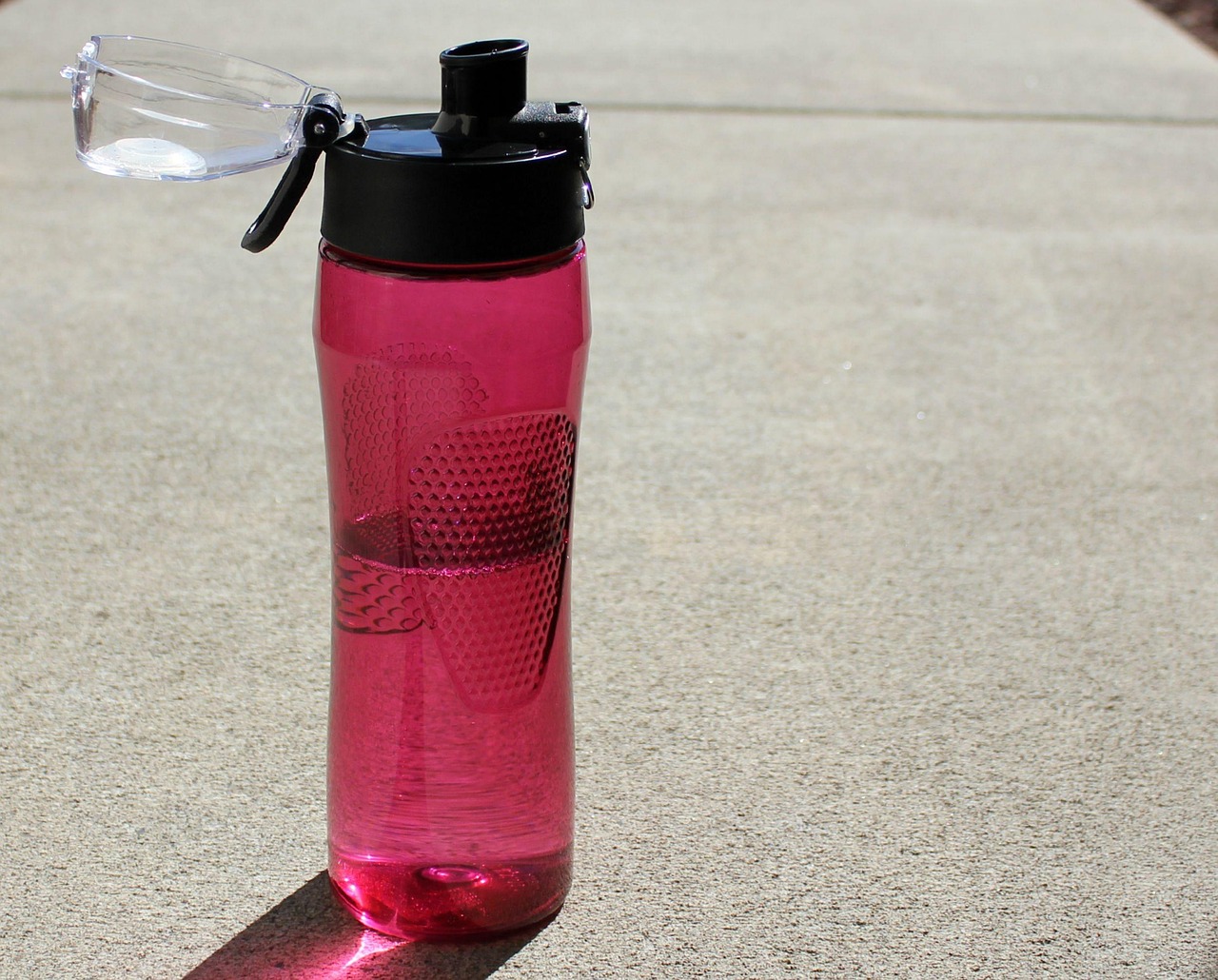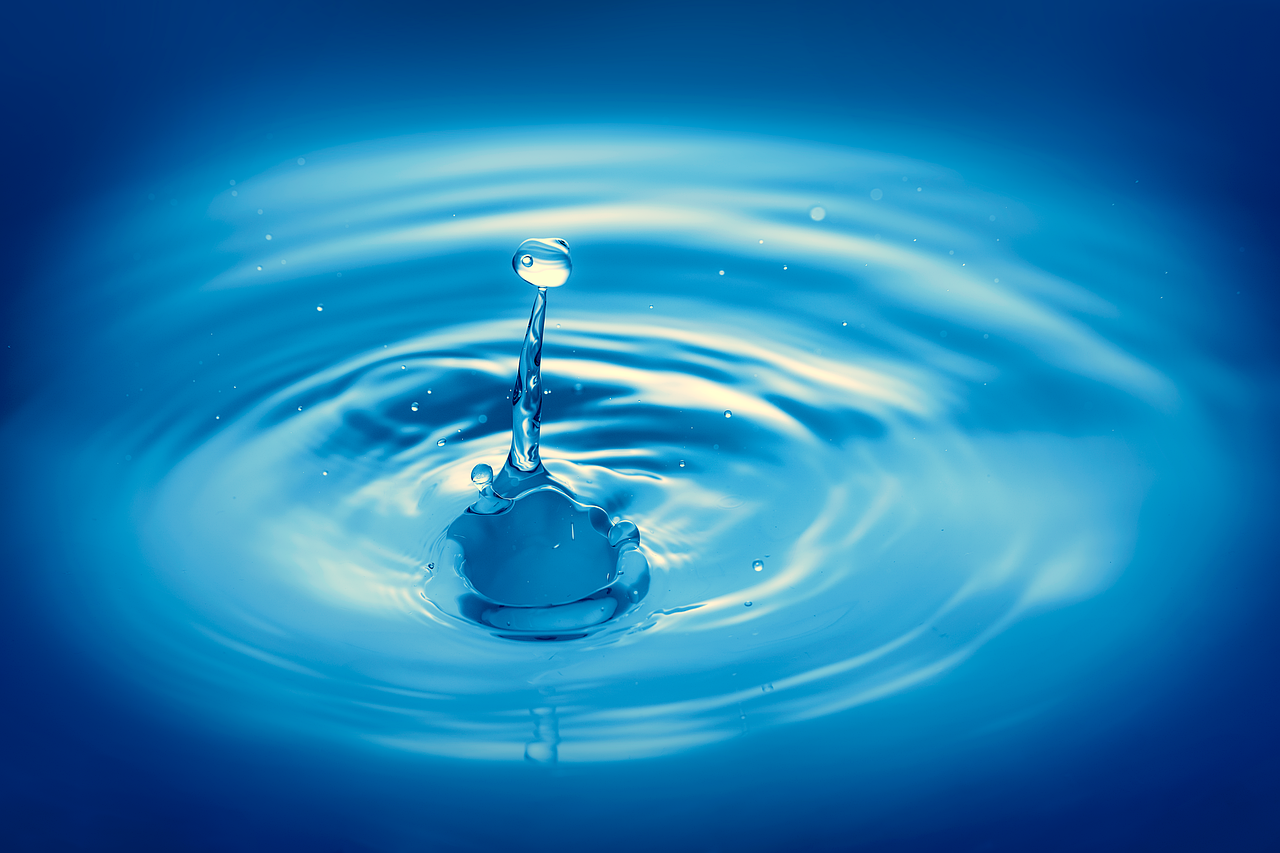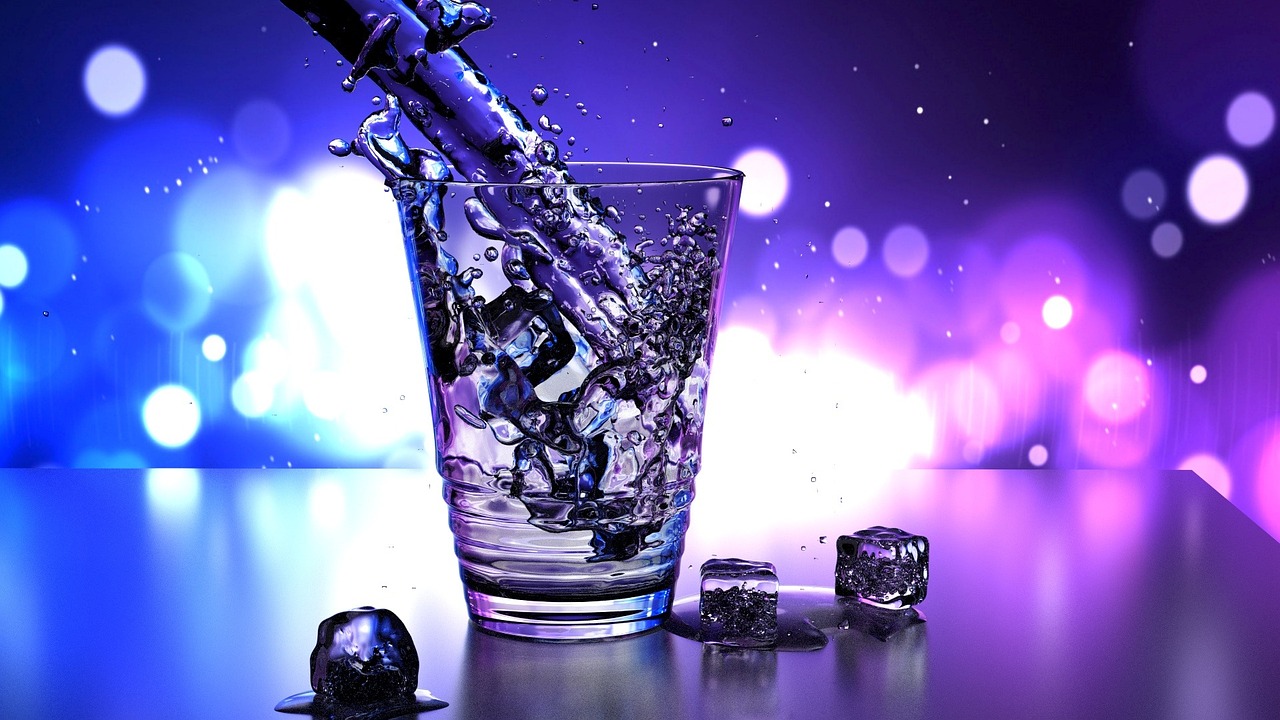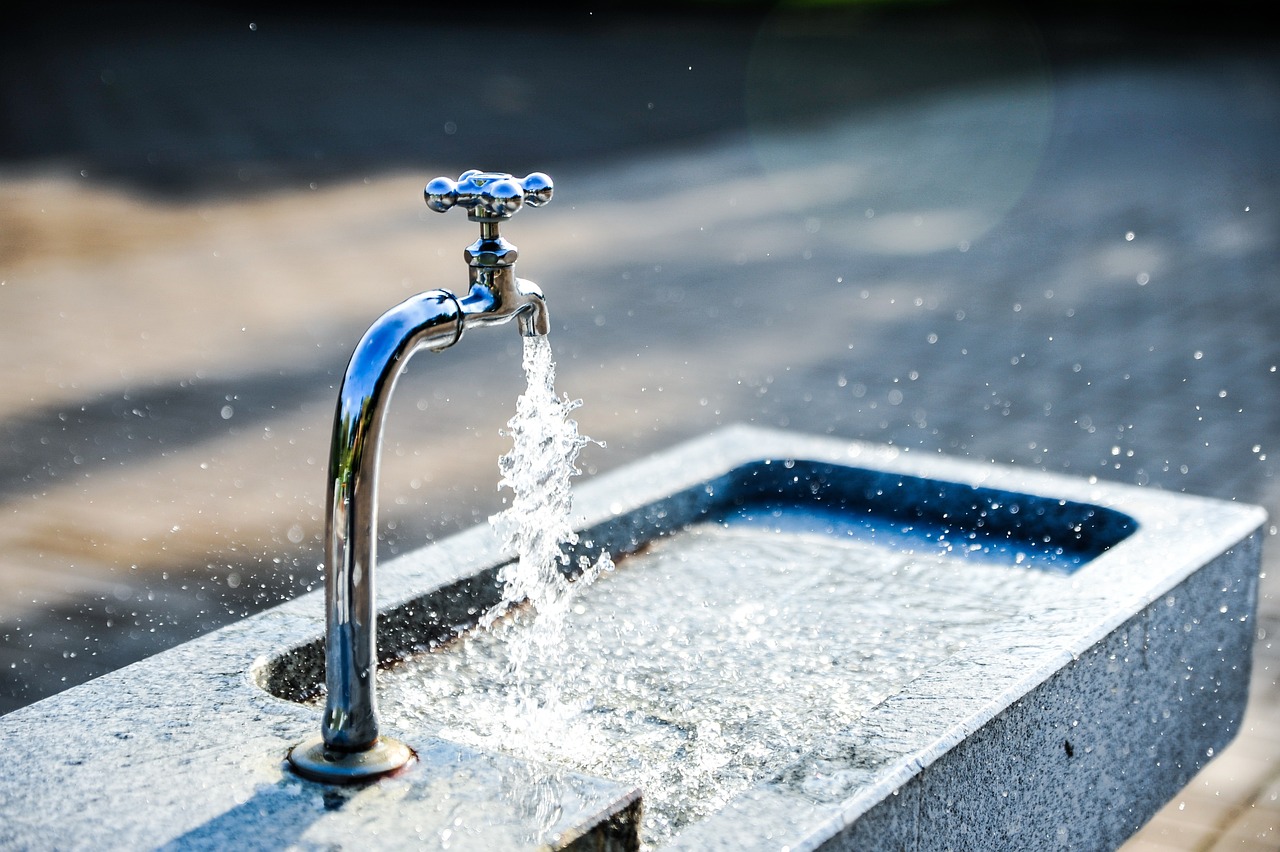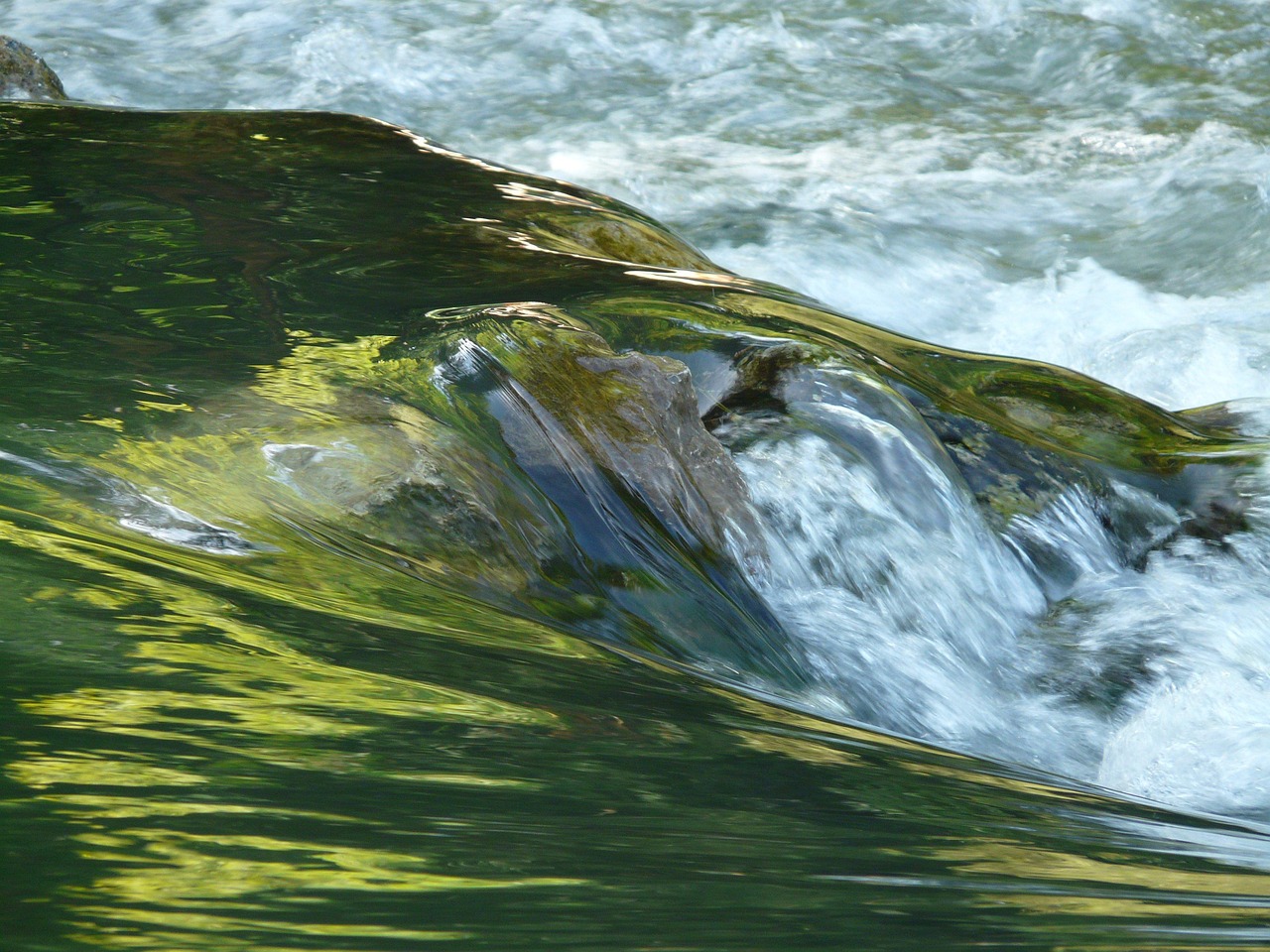This article explores effective strategies for maintaining hydration during a water fast while avoiding the risks associated with overdrinking. Discover expert insights and practical tips for a safe fasting experience.
Understanding Water Fasting
Water fasting is a practice where individuals abstain from all food intake, consuming only water for a specified period. This approach can offer various potential benefits, such as improved metabolic health, enhanced detoxification, and mental clarity. However, one of the most critical aspects of water fasting is ensuring adequate hydration. Proper hydration is essential for maintaining bodily functions and can significantly affect your overall fasting experience.
The Importance of Hydration in Fasting
During a fast, hydration plays a vital role in supporting physiological functions. Water is crucial for maintaining blood volume, regulating body temperature, and facilitating cellular processes. Dehydration can lead to fatigue, headaches, and dizziness, which can hinder the benefits of fasting. Understanding the importance of hydration is fundamental for anyone considering this practice.
- How Water Affects Metabolism: Water is essential for metabolic processes, influencing energy levels and nutrient absorption. Adequate hydration can enhance your metabolism, making fasting more effective.
- Water’s Role in Nutrient Transport: Water aids in transporting nutrients throughout the body, ensuring that essential vitamins and minerals are delivered to cells efficiently.
- Hydration and Detoxification: Sufficient water intake supports the body’s detoxification processes, helping to flush out toxins effectively during a fast.
Signs of Dehydration to Watch For
Recognizing the symptoms of dehydration is crucial for anyone undertaking a water fast. Common signs include:
- Dry mouth and throat
- Dark yellow urine
- Dizziness or lightheadedness
- Fatigue
If you experience these symptoms, it’s essential to take action and rehydrate promptly.
Strategies for Staying Hydrated
Implementing effective hydration strategies can enhance your fasting experience. Here are some practical tips:
- Setting a Hydration Schedule: Create a manageable schedule for water intake. For instance, aim to drink a glass of water every hour to maintain consistent hydration.
- Using Electrolyte Supplements: Consider incorporating electrolyte supplements to maintain balance without risking overconsumption of water. This can help prevent imbalances that may arise during fasting.
Understanding Overdrinking Risks
While hydration is crucial, overdrinking can lead to water intoxication, a serious condition that can disrupt electrolyte balance and lead to health complications. It’s essential to find the right balance in your water intake.
- Recognizing Symptoms of Overhydration: Symptoms may include nausea, headache, confusion, and swelling. If you notice these signs, reduce your water intake immediately.
- Balancing Water Intake with Body Needs: Each person’s hydration needs vary based on factors like activity level, climate, and individual health. Tailor your water intake to your specific requirements for optimal results.
Post-Fast Hydration Tips
Proper hydration after completing a water fast is equally important. Gradually reintroduce fluids, starting with water, herbal teas, or diluted juices. This approach helps your body adjust back to regular eating habits without overwhelming your system.
In summary, staying hydrated during a water fast is essential for maximizing the benefits of fasting while minimizing risks. By understanding the importance of hydration, recognizing signs of dehydration and overhydration, and implementing effective strategies, you can ensure a safe and beneficial fasting experience.

Understanding Water Fasting
is essential for anyone considering this practice. Water fasting is a dietary approach that involves abstaining from all food and consuming only water for a specified period. This method has gained popularity for its potential health benefits, including weight loss, improved metabolic health, and enhanced detoxification processes.
During a water fast, the body enters a state of ketosis, where it begins to burn stored fat for energy. This metabolic shift can lead to significant weight loss and improved body composition. Additionally, water fasting is believed to promote cellular repair and autophagy, a process where the body cleans out damaged cells and regenerates new ones. This can be particularly beneficial for overall health and longevity.
However, the importance of hydration cannot be overstated during a water fast. Our bodies are composed of approximately 60% water, and maintaining adequate hydration is crucial for various bodily functions. Water plays a vital role in regulating body temperature, lubricating joints, and facilitating nutrient transport. When fasting, the absence of food means that the body relies entirely on water to maintain these functions.
Dehydration can lead to several adverse effects, including fatigue, dizziness, and impaired cognitive function. Therefore, it is essential to listen to your body and ensure you are consuming enough water throughout the fasting period. Experts recommend drinking water consistently rather than waiting until thirst sets in, as thirst can often be a late indicator of dehydration.
Moreover, understanding the physiological effects of dehydration is critical. When the body is dehydrated, it can lead to a decrease in blood volume, affecting circulation and nutrient delivery to cells. This can hinder the benefits of fasting and may even pose health risks. Thus, maintaining proper hydration is not just a matter of comfort; it is vital for ensuring the effectiveness of the fast.
In summary, water fasting can offer numerous health benefits, but it requires a commitment to proper hydration. By understanding the basics of water fasting and the importance of staying hydrated, individuals can embark on this journey with greater confidence and safety. As always, it is advisable to consult with a healthcare professional before starting any fasting regimen, especially for those with underlying health conditions.
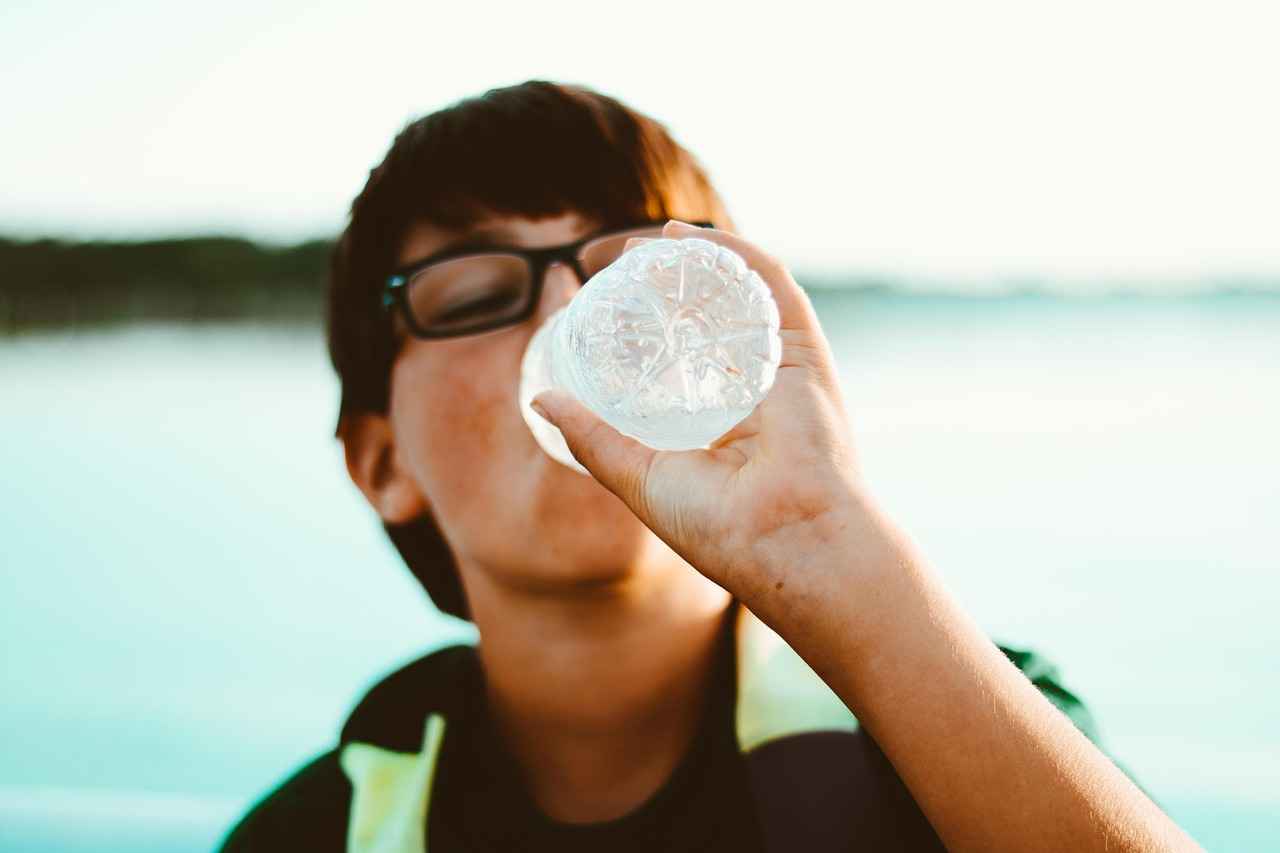
The Importance of Hydration in Fasting
Hydration is a fundamental aspect of health, and its importance is magnified during fasting. When you engage in a water fast, your body undergoes various changes that can significantly impact its physiological functions. Understanding the critical role of hydration is essential for anyone looking to fast safely and effectively.
During fasting, the body relies on water to maintain essential functions such as temperature regulation, joint lubrication, and nutrient transport. Without adequate hydration, these processes can become compromised, leading to a range of negative effects on your health.
One of the most significant physiological effects of dehydration is the impact it has on your metabolism. Water is crucial for metabolic reactions, including the breakdown of fats and carbohydrates for energy. When dehydrated, your metabolism can slow down, making it more challenging to maintain energy levels throughout the fast.
Moreover, dehydration can lead to an imbalance in electrolytes, which are vital for muscle function and nerve signaling. This imbalance can result in symptoms such as muscle cramps, fatigue, and even dizziness, making the fasting experience uncomfortable and potentially dangerous.
In addition to metabolic issues, dehydration can hinder the body’s detoxification processes. Water plays a key role in flushing out toxins and waste products from the body. When you are not adequately hydrated, the kidneys may struggle to perform their function effectively, which can lead to the accumulation of harmful substances in the body.
Recognizing the signs of dehydration is crucial for anyone undertaking a water fast. Common symptoms include:
- Thirst: A clear indicator that your body needs more water.
- Dry mouth and lips: These symptoms can manifest quickly during fasting.
- Dark yellow urine: This can be a sign that you are not drinking enough water.
- Dizziness or lightheadedness: These symptoms can indicate severe dehydration.
To maintain hydration during a fast, it is essential to drink water consistently throughout the day. However, it’s equally important to avoid overdrinking, which can lead to water intoxication, a condition that can have serious health implications.
In summary, staying hydrated during a fast is not just about quenching thirst; it is about supporting your body’s essential functions. Adequate hydration helps maintain metabolic processes, supports detoxification, and prevents the adverse effects of dehydration. By understanding the importance of hydration and recognizing the signs of dehydration, you can ensure a safer and more effective fasting experience.
How Water Affects Metabolism
Water is an essential component of life, and its significance extends far beyond mere hydration. During periods of fasting, particularly water fasting, understanding how water influences metabolism becomes crucial for optimizing health and energy levels. This section explores the multifaceted role of water in metabolic processes, highlighting its impact on energy production, nutrient absorption, and overall bodily function.
Metabolism refers to the biochemical processes that convert food into energy. Water is integral to these processes, as it participates in various chemical reactions necessary for breaking down nutrients. When fasting, the body relies on stored energy sources, and adequate hydration ensures that these sources are utilized efficiently. Dehydration can slow down metabolic rates, leading to fatigue and decreased energy levels, which are especially detrimental during a fast.
One of the primary ways water affects metabolism is through its role in thermoregulation. When the body is well-hydrated, it can maintain a stable internal temperature, which is vital for optimal metabolic function. In contrast, dehydration can lead to overheating and increased heart rate, further complicating the fasting experience.
Furthermore, water is crucial for the absorption of essential nutrients. During a fast, the body still requires vitamins and minerals to function effectively. Water facilitates the transport of these nutrients throughout the body, ensuring that cells receive what they need to perform their functions. This nutrient transport is vital for maintaining energy levels and supporting metabolic processes.
Additionally, hydration plays a key role in the body’s detoxification processes. During fasting, the body works to eliminate toxins and waste products. Adequate water intake helps to flush out these substances, promoting a healthier metabolic environment. This detoxification is essential for maintaining energy levels and overall well-being during a fast.
To maximize the benefits of hydration during a water fast, it is essential to monitor your water intake carefully. While staying hydrated is crucial, overhydration can lead to water intoxication, which disrupts electrolyte balance and can have serious health implications. Therefore, it is important to find a balance that meets your body’s needs without exceeding them.
Incorporating electrolyte supplements can also enhance hydration during fasting. These supplements help maintain electrolyte balance, which is vital for muscle function and overall metabolic processes. However, it is important to use them judiciously to avoid overconsumption of water.
Recognizing the signs of dehydration is equally important. Symptoms such as dizziness, dry mouth, and fatigue can indicate that your body needs more water. By paying attention to these signs, you can adjust your hydration strategy accordingly, ensuring that you remain energized and focused throughout your fast.
In summary, water plays a pivotal role in metabolism, especially during fasting. By understanding its effects on energy levels, nutrient absorption, and detoxification, you can optimize your fasting experience. Proper hydration not only supports metabolic processes but also enhances overall health, making it a vital aspect of any fasting regimen.
Water’s Role in Nutrient Transport
Water is often referred to as the essence of life, and its role extends far beyond mere hydration. During a water fast, understanding how water facilitates nutrient transport is crucial for appreciating its significance. This section delves into the mechanisms that underpin nutrient transport and the vital role hydration plays in this process.
Water serves as a universal solvent, meaning it can dissolve a variety of substances, including essential nutrients such as vitamins, minerals, and electrolytes. This property allows water to effectively transport these nutrients throughout the body, ensuring that every cell receives what it needs to function optimally. When fasting, the body relies heavily on water to distribute nutrients that may still be present in the bloodstream or released from stored reserves.
During fasting, the body undergoes several physiological changes. As the body transitions into a fasting state, it begins to utilize stored fat for energy, a process known as lipolysis. This process releases fatty acids and glycerol into the bloodstream, which are then transported to various tissues for energy. Here, water plays a crucial role in transporting these byproducts, as well as assisting in the removal of metabolic waste products.
The importance of hydration during fasting cannot be overstated. Adequate water intake helps maintain blood volume, which is essential for nutrient transport. When dehydrated, blood volume decreases, leading to reduced circulation and, consequently, impaired nutrient delivery to cells. This can affect energy levels, cognitive function, and overall well-being.
Moreover, water is involved in the digestion and absorption of nutrients. Even though food intake is absent during a water fast, the body continues to absorb nutrients from previous meals. Water aids in breaking down these nutrients and facilitating their transport through the digestive system and into the bloodstream.
It’s also important to consider the impact of hydration on electrolyte balance. Electrolytes, such as sodium, potassium, and magnesium, are crucial for various bodily functions, including muscle contractions and nerve signaling. Proper hydration ensures that these electrolytes remain balanced, which is especially important during fasting when the body may experience fluctuations in electrolyte levels.
In summary, water’s role in nutrient transport during a fast is multifaceted. It not only helps dissolve and carry essential nutrients but also supports metabolic processes and maintains electrolyte balance. By understanding these mechanisms, individuals can better appreciate the importance of hydration during a water fast, ultimately enhancing their fasting experience and promoting overall health.
As you embark on your fasting journey, remember that staying adequately hydrated is key to ensuring that your body functions optimally. Incorporating strategies to maintain a consistent water intake can help you navigate the fasting period more effectively, allowing you to reap the full benefits of your water fast.
Hydration and Detoxification
Hydration plays a crucial role in the body’s detoxification processes, particularly during a water fast. When you abstain from food, your body relies on water not only for survival but also for efficiently flushing out toxins that accumulate from metabolic processes and environmental exposure. In this section, we will explore how adequate hydration supports detoxification and why it is essential during a water fast.
Detoxification Defined
Detoxification is the process through which the body eliminates harmful substances. This includes both waste products resulting from metabolism and toxins ingested from external sources. The liver, kidneys, and skin are primary organs involved in detoxification, and they require sufficient water to function optimally.
The Role of Water in Detoxification
Water is vital for various bodily functions, including:
- Solvent for Nutrients: Water acts as a medium for transporting nutrients and waste products, facilitating their movement in and out of cells.
- Temperature Regulation: Maintaining body temperature through sweating helps expel toxins.
- Kidney Function: Adequate hydration ensures that kidneys can filter blood effectively, removing waste products and excess substances.
- Liver Support: The liver metabolizes toxins, and water aids in the elimination of these processed substances.
Why Hydration is Critical During a Water Fast
During a water fast, the absence of food intake means that the body must rely entirely on water to support its detoxification processes. Here are a few reasons why hydration is particularly crucial during this time:
- Enhanced Toxin Removal: Drinking sufficient water helps flush out toxins more efficiently, reducing the burden on the liver and kidneys.
- Reduced Fatigue: Dehydration can lead to fatigue and dizziness, making it more challenging to endure a fast.
- Improved Digestion: While food is not consumed, the digestive system still requires hydration to keep things moving smoothly.
Signs of Insufficient Hydration
It’s essential to recognize the signs of dehydration during a water fast. Common symptoms include:
- Dizziness or lightheadedness
- Dry mouth and skin
- Fatigue and weakness
- Headaches
If you experience any of these symptoms, it is vital to increase your water intake immediately. Staying attuned to your body’s signals will help you maintain optimal hydration levels.
Practical Tips for Hydration During a Water Fast
To ensure adequate hydration while avoiding overdrinking, consider the following strategies:
- Set a Schedule: Create a routine for drinking water throughout the day to maintain consistent hydration.
- Monitor Your Intake: Keep track of how much water you consume to avoid both dehydration and overhydration.
- Use Electrolytes Wisely: Incorporating electrolyte supplements can help maintain balance without the risk of overconsumption.
In conclusion, hydration is a key component of the detoxification process, especially during a water fast. By understanding its importance and implementing effective hydration strategies, you can support your body’s natural detoxification mechanisms and enhance your fasting experience.
Signs of Dehydration to Watch For
Recognizing the signs of dehydration is essential for anyone undertaking a water fast. When the body is deprived of food and only provided with water, it becomes increasingly important to monitor hydration levels closely. Dehydration can lead to a range of health issues, and understanding its symptoms can help you take timely action to rehydrate.
- Thirst: One of the earliest signs of dehydration is a feeling of thirst. If you find yourself constantly reaching for water, it’s a clear indication that your body needs more fluids.
- Dry Mouth and Lips: A dry or sticky feeling in the mouth, along with chapped lips, can signal that you are not drinking enough water. This symptom often accompanies thirst.
- Dark-Colored Urine: The color of your urine can be a good indicator of hydration. Dark yellow or amber urine suggests that you may be dehydrated, while light, pale yellow urine indicates proper hydration.
- Fatigue: Feeling unusually tired or sluggish can be a sign of dehydration. Water is crucial for maintaining energy levels, and a lack of it can lead to fatigue.
- Dizziness or Lightheadedness: If you experience dizziness or a feeling of lightheadedness, especially when standing up, it may be due to low fluid levels in your body.
- Headaches: Dehydration can trigger headaches or migraines in some individuals. If you are fasting and experience frequent headaches, consider your water intake.
- Muscle Cramps: Insufficient hydration can lead to muscle cramps, particularly if you are engaging in physical activity during your fast. Pay attention to any cramps that arise unexpectedly.
- Rapid Heart Rate: An increased heart rate can occur as the body struggles to maintain blood pressure due to low fluid levels. If you notice your heart racing, it may be a sign to rehydrate.
It’s important to note that everyone’s body reacts differently to fasting and dehydration. The symptoms listed above can vary in intensity and may not all be present. If you notice any of these signs, it is crucial to take immediate action to rehydrate. Drinking small sips of water regularly can help restore hydration levels without overwhelming the body.
In addition to these symptoms, consider monitoring your overall well-being. If you feel unwell or experience severe symptoms, it may be wise to consult a healthcare professional. Remember, staying hydrated is vital for a safe and effective water fast, so pay close attention to your body’s signals throughout the process. By recognizing the signs of dehydration early, you can ensure a more comfortable and healthy fasting experience.

Strategies for Staying Hydrated
Implementing effective hydration strategies can significantly enhance your fasting experience. Staying hydrated is not just about drinking water; it involves a thoughtful approach to ensure your body receives the right amount of fluids without the risk of overdrinking. Below are practical tips to help you maintain optimal hydration during your water fast.
- Establish a Hydration Routine: Creating a hydration schedule can help you monitor your water intake effectively. Aim to drink a specific amount of water at regular intervals throughout the day. For instance, consider drinking a glass of water every hour. This method not only keeps you hydrated but also prevents the urge to consume large amounts of water at once.
- Listen to Your Body: Pay attention to your thirst signals. While it’s important to stay hydrated, overdrinking can lead to complications. If you feel thirsty, drink water; if not, give your body a break. Understanding your body’s hydration needs is key to maintaining balance.
- Monitor Your Urine Color: A simple yet effective way to gauge your hydration level is by checking the color of your urine. Ideally, it should be light yellow. Dark urine may indicate dehydration, while completely clear urine might suggest overhydration. Adjust your water intake accordingly.
- Incorporate Electrolytes: During a water fast, maintaining electrolyte balance is crucial. Consider adding a pinch of salt or electrolyte supplements to your water. This can help replenish essential minerals lost through sweat and support hydration without the risk of overconsumption.
- Stay Cool: Heat can increase your thirst and lead to dehydration. Try to stay in a cool environment, especially if you are fasting during warmer months. This can help minimize excessive sweating and maintain your hydration levels.
- Use a Water Tracking App: Technology can be your ally in staying hydrated. Several apps allow you to track your water intake throughout the day. Setting reminders can also help you stay on track with your hydration goals.
By implementing these strategies, you can ensure that you stay adequately hydrated during your water fast, enhancing your overall experience and supporting your body’s needs. Remember, the goal is to find a balance that works for you, allowing you to reap the benefits of fasting without compromising your health.
Setting a Hydration Schedule
Establishing a hydration schedule during a water fast is essential for maintaining consistent water intake. A well-planned schedule not only helps you stay hydrated but also supports your overall fasting experience. Below are some practical steps to create a manageable hydration plan that aligns with your fasting routine.
- Assess Your Daily Needs: Begin by calculating your daily water requirements. A common guideline is to drink at least half your body weight in ounces of water daily. For instance, if you weigh 150 pounds, aim for 75 ounces of water.
- Divide Your Intake: Once you know your daily requirement, divide this amount into smaller portions to be consumed throughout the day. This can help prevent overwhelming your body with too much water at once.
- Set Specific Times: Create a schedule that includes specific times for drinking water. For example, you might choose to drink a glass of water every hour or set reminders on your phone to help you stay on track.
- Incorporate Water-Rich Foods: If you are not strictly adhering to a water-only fast, consider including water-rich foods in your diet. Foods like cucumbers, watermelon, and oranges can contribute to your hydration levels.
Additionally, be mindful of your body’s signals. Pay attention to feelings of thirst, which can indicate your hydration status. It’s also important to recognize that during a fast, your hydration needs may vary based on factors such as activity level and environmental conditions.
Tracking Your Intake: Keeping a hydration journal can be beneficial. Document the amount of water you consume each day to ensure you meet your hydration goals. This practice can also help you identify patterns in your drinking habits.
Lastly, consider the timing of your water intake. Drinking water before meals can help with satiety, while hydration after physical activity can expedite recovery. Adjust your schedule as needed, ensuring it remains flexible to accommodate your fasting routine.
By following these guidelines, you can create a hydration schedule that not only supports your fasting journey but also enhances your overall well-being. Remember, staying hydrated is a vital component of a successful water fast.
Using Electrolyte Supplements
When undertaking a water fast, maintaining electrolyte balance is essential for optimal health and hydration. Electrolytes, such as sodium, potassium, and magnesium, play critical roles in various bodily functions, including muscle contractions and nerve signaling. During fasting, the body can lose electrolytes through urine and sweat, making it necessary to replenish them to prevent imbalances.
Incorporating electrolyte supplements into your fasting routine can enhance hydration without the risks associated with excessive water consumption. Here are some key points to consider:
- Choosing the Right Electrolyte Supplement: Not all electrolyte supplements are created equal. Look for products that contain a balanced mix of essential electrolytes without added sugars or artificial ingredients. Natural options, such as coconut water or electrolyte powders, can be excellent choices.
- Timing Your Supplement Intake: To maximize the benefits of electrolyte supplements, consider taking them at strategic times throughout the day. For example, consuming a supplement in the morning can help kickstart hydration, while another dose in the afternoon can sustain energy levels.
- Monitoring Your Body’s Response: Pay attention to how your body reacts to electrolyte supplements. Signs of adequate hydration include clear urine and stable energy levels. If you experience symptoms such as dizziness or fatigue, it may indicate that you need to adjust your electrolyte intake.
- Hydration Without Overdrinking: Electrolyte supplements can help mitigate the risks of overdrinking. By ensuring your body has the necessary minerals, you may find that you can drink less water while still remaining adequately hydrated.
It’s also crucial to understand the potential risks associated with overconsumption of water during fasting. Overhydration can lead to a dangerous condition known as hyponatremia, where sodium levels in the blood drop too low. This can result in symptoms such as nausea, headache, and confusion. By integrating electrolytes into your fasting regimen, you can help maintain sodium levels and reduce the risk of this condition.
Additionally, electrolyte supplements can support your detoxification processes during fasting. Adequate levels of electrolytes help your kidneys function efficiently, flushing out toxins and waste products from the body. This is particularly important during a fast, as the body undergoes various metabolic changes that can lead to increased toxin release.
In summary, incorporating electrolyte supplements during a water fast is a proactive way to enhance hydration and maintain electrolyte balance. By choosing the right products, timing your intake, and monitoring your body’s responses, you can safely navigate the fasting experience while minimizing the risk of overdrinking. Remember to consult with a healthcare professional before starting any supplement regimen, especially during fasting, to ensure it aligns with your individual health needs.
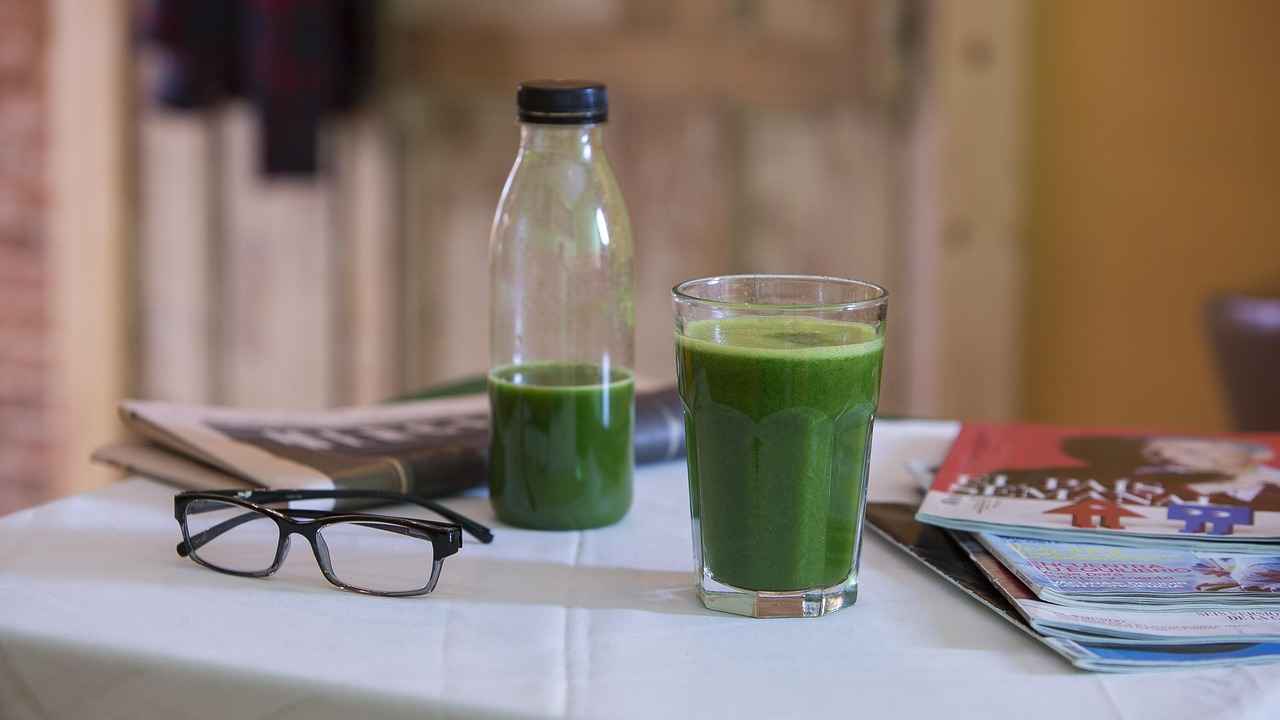
Understanding Overdrinking Risks
During a water fast, it is essential to stay mindful of hydration levels. While drinking water is crucial for maintaining bodily functions, overdrinking can lead to severe health complications, including a condition known as water intoxication. This section explores the risks associated with excessive water intake during a fasting period and offers practical advice on how to avoid this dangerous pitfall.
Water intoxication occurs when the balance of electrolytes in the body is disrupted due to an excessive intake of water. This can lead to a dilution of sodium levels in the bloodstream, resulting in a condition known as hyponatremia. Symptoms of hyponatremia can range from mild to severe and include:
- Headaches
- Nausea and vomiting
- Confusion or disorientation
- Muscle cramps or spasms
- Severe cases can lead to seizures or coma
Recognizing these symptoms is vital for anyone engaging in a water fast. It is important to listen to your body and respond accordingly if you start to experience any of these signs. Remember, hydration should be balanced and tailored to your individual needs.
To prevent the dangers of overdrinking, consider the following strategies:
- Monitor Your Intake: Keep track of how much water you are consuming. A general guideline is to drink when you feel thirsty, rather than adhering to a strict schedule.
- Incorporate Electrolytes: Adding electrolyte supplements to your hydration routine can help maintain balance without the need to consume excessive amounts of water.
- Adjust Based on Activity: Your hydration needs may vary depending on your level of physical activity and the climate. Hot weather or intense exercise can increase your fluid needs, but be cautious not to overcompensate.
It’s also beneficial to understand that hydration needs can differ significantly from one person to another. Factors such as age, sex, body weight, and overall health can influence how much water you should drink. Tailoring your water intake to your specific situation is key to avoiding the risks of overdrinking.
In conclusion, while staying hydrated is essential during a water fast, it is equally important to avoid the risks associated with overdrinking. By being aware of the signs of overhydration and implementing effective hydration strategies, you can ensure a safe and healthy fasting experience.
Recognizing Symptoms of Overhydration
Understanding the symptoms of overhydration is essential for anyone engaging in activities that require careful monitoring of water intake, such as water fasting. While staying hydrated is critical, it is equally important to recognize the signs of water intoxication, which can lead to serious health complications. This section outlines the key symptoms to watch for and advises on when to seek medical attention.
Water intoxication, also referred to as hyperhydration, occurs when the body takes in more water than it can eliminate. This imbalance can dilute electrolytes in the bloodstream, particularly sodium, leading to a condition known as hyponatremia. The symptoms can range from mild to severe, and understanding these signs can help prevent potential health risks.
- Early Symptoms: Initial signs of overhydration may include nausea, headache, and a general feeling of discomfort. These symptoms can easily be mistaken for other conditions, making it vital to pay attention to their context.
- Neurological Symptoms: As the condition progresses, individuals may experience confusion, disorientation, or even seizures. These neurological symptoms indicate that the brain is affected by the electrolyte imbalance.
- Physical Symptoms: Swelling in the hands, feet, or face can occur due to fluid retention. This condition, known as edema, is a direct result of excessive water intake.
- Severe Symptoms: In extreme cases, overhydration can lead to coma or death. If symptoms escalate to severe confusion, difficulty breathing, or loss of consciousness, immediate medical attention is necessary.
It is crucial to monitor your body’s response to hydration, especially during a water fast. If you notice any of the symptoms mentioned above, it is advisable to reduce water intake and consult a healthcare professional. They can provide guidance and necessary interventions to restore electrolyte balance and ensure safety.
To avoid the risks associated with overhydration, consider implementing a few strategies:
- Listen to Your Body: Pay attention to thirst cues. While it is important to stay hydrated, drinking should be based on your body’s needs rather than a strict schedule.
- Monitor Urine Color: A practical way to gauge hydration is by observing urine color. Pale yellow indicates good hydration, while clear urine may suggest overhydration.
- Consult with Professionals: If you are unsure about your hydration needs during a fast, seek advice from a healthcare provider or a nutritionist who can tailor recommendations to your specific circumstances.
By being aware of the symptoms of overhydration and implementing these preventive measures, you can maintain a safe and effective fasting experience. Remember, hydration is essential, but balance is key.
Balancing Water Intake with Body Needs
Understanding that hydration needs vary from person to person is crucial for maintaining optimal health, especially during water fasting. Several factors influence how much water an individual should consume, including activity level, climate, and overall health. This section provides insights into how to tailor your water intake to meet your unique hydration requirements.
- Activity Level: The more active you are, the more water your body requires. Physical activities increase sweat production, leading to greater fluid loss. For those engaging in regular exercise, it is essential to monitor water intake closely. A general guideline is to consume an additional 1-2 cups of water for every hour of exercise.
- Climate Considerations: The environment plays a significant role in hydration needs. In hot and humid conditions, your body loses more water through sweat. Conversely, in cold weather, you may not feel thirsty but still need to hydrate adequately. It’s advisable to increase water intake in extreme weather conditions to prevent dehydration.
- Individual Health Factors: Certain health conditions, such as kidney disorders or diabetes, can affect hydration needs. Individuals with these conditions should consult healthcare professionals to determine their specific water intake requirements.
To effectively balance your water intake, consider the following practical tips:
- Listen to Your Body: Pay attention to thirst signals. They are your body’s natural way of indicating that it needs more fluids.
- Monitor Urine Color: A simple way to gauge hydration is to check the color of your urine. Light yellow indicates proper hydration, while dark yellow suggests that you need to drink more water.
- Set Hydration Goals: Establish daily water intake goals based on your activity level and environmental conditions. Keeping a water journal or using hydration apps can help track your intake.
- Incorporate Hydrating Foods: Foods with high water content, such as fruits and vegetables, can contribute to your overall hydration. Incorporating these into your diet can enhance your fluid intake.
In addition to these tips, understanding the physiological mechanisms behind hydration can further enhance your awareness of individual needs. Water is not just a thirst quencher; it plays a vital role in regulating body temperature, lubricating joints, and transporting nutrients. By recognizing how your body responds to different hydration levels, you can make informed decisions about your water intake.
Ultimately, balancing water intake with your body’s needs is a personalized process. By considering your activity level, climate, and health status, you can ensure that you stay adequately hydrated, especially during periods of fasting. Remember that hydration is not a one-size-fits-all approach; it requires attention and adjustment to align with your unique lifestyle.

Post-Fast Hydration Tips
Post-fast hydration is a critical component of successfully transitioning back to regular eating habits after a water fast. Proper rehydration not only helps replenish lost fluids but also prepares your body to reintroduce food safely. This section outlines effective strategies to ensure a smooth post-fast hydration process.
After a water fast, your body may be in a state of mild dehydration. Rehydrating properly can help restore electrolyte balance, improve digestion, and enhance overall well-being. It is important to approach rehydration with care to avoid overwhelming your system.
Start by consuming small sips of water rather than drinking large amounts all at once. This gradual approach allows your body to absorb fluids effectively and reduces the risk of discomfort. Aim for:
- 1-2 ounces of water every 15-20 minutes.
- Incorporating herbal teas or diluted electrolyte drinks as you progress.
During the rehydration phase, it’s crucial to restore electrolytes that may have been depleted during the fast. Consider the following:
- Electrolyte-rich beverages: Coconut water and homemade electrolyte drinks can be beneficial.
- Natural sources: Foods like bananas, avocados, and leafy greens are excellent for replenishing potassium and magnesium.
Pay close attention to how your body responds during rehydration. Signs that you may need to adjust your fluid intake include:
- Thirst or dry mouth.
- Dark yellow urine, which indicates dehydration.
- Fatigue or dizziness.
Timing is key in the rehydration process. Initially, focus on hydration before introducing solid foods. Once you feel comfortable, you can gradually start eating. A suggested timeline is:
| Time After Fast | Recommended Action |
|---|---|
| 0-2 Hours | Small sips of water or herbal tea. |
| 2-4 Hours | Incorporate electrolyte drinks. |
| 4-6 Hours | Start consuming light, easily digestible foods. |
When reintroducing solid foods, opt for gentle, hydrating options that are easy on the stomach. Some recommended foods include:
- Broths and soups.
- Steamed vegetables.
- Fruits with high water content, such as watermelon and oranges.
Many individuals make mistakes during the rehydration phase. Here are some pitfalls to avoid:
- Overconsumption of caffeine: It can lead to dehydration.
- High-sugar beverages: These can cause digestive discomfort.
- Large meals immediately: This can overwhelm your digestive system.
In conclusion, proper hydration after a water fast is essential for a successful transition back to regular eating habits. By following these strategies, you can ensure that your body is well-hydrated and ready to absorb nutrients effectively. Always listen to your body and proceed with caution to maintain your health and well-being.
Frequently Asked Questions
- What is water fasting?
Water fasting is the practice of abstaining from all food and consuming only water for a certain period. It’s often done for health benefits or spiritual reasons, but staying hydrated is key during this time.
- Why is hydration important during a water fast?
Hydration supports essential bodily functions, boosts metabolism, and aids in detoxification. Without enough water, you risk dehydration, which can lead to fatigue, headaches, and other health issues.
- How can I tell if I’m dehydrated?
Common signs of dehydration include dry mouth, dizziness, dark urine, and fatigue. If you notice these symptoms, it’s crucial to rehydrate immediately to avoid complications.
- What strategies can I use to stay hydrated?
Consider setting a hydration schedule, using electrolyte supplements, and listening to your body’s signals. Keeping a water bottle handy can also remind you to drink regularly.
- What are the risks of overdrinking during a fast?
Overdrinking can lead to water intoxication, which may cause serious health issues like hyponatremia. It’s important to balance your water intake with your body’s needs to avoid this risk.
- How should I rehydrate after completing a water fast?
After a water fast, gradually reintroduce fluids and consider consuming electrolyte-rich beverages. This helps your body adjust back to regular eating and ensures proper hydration.
